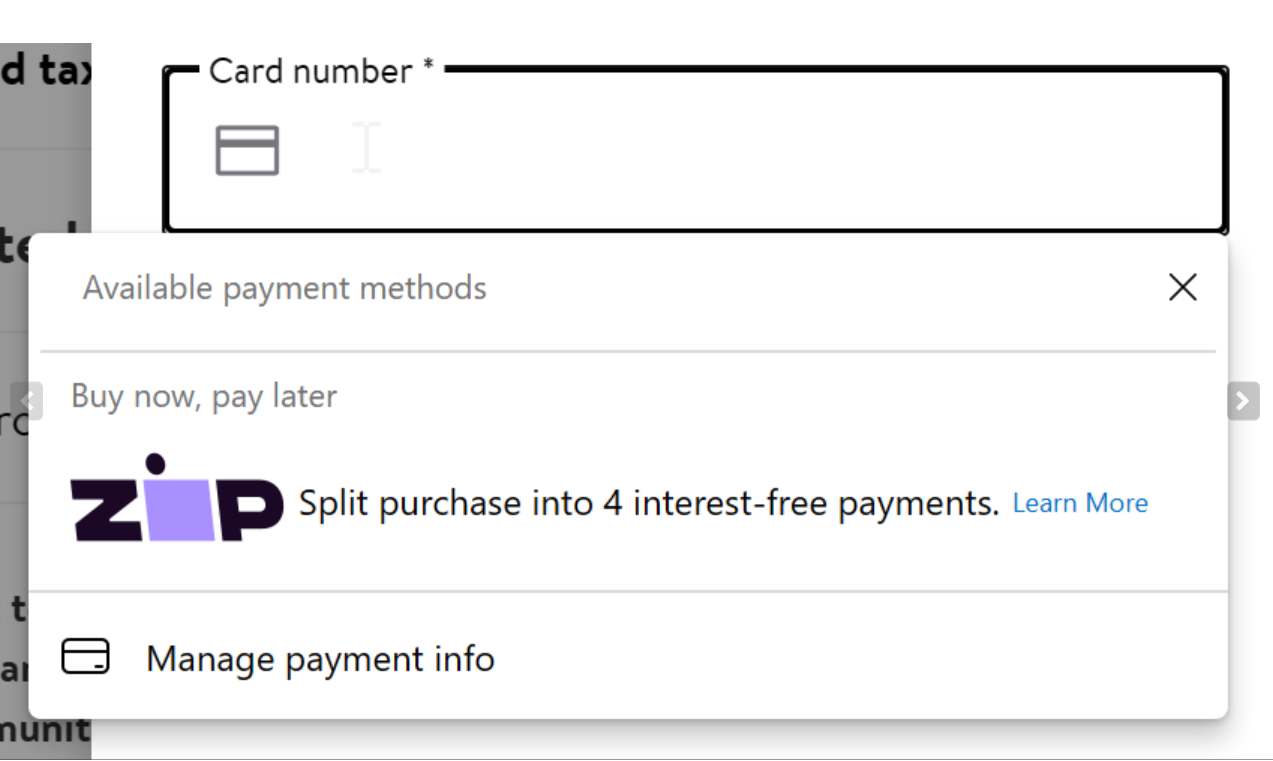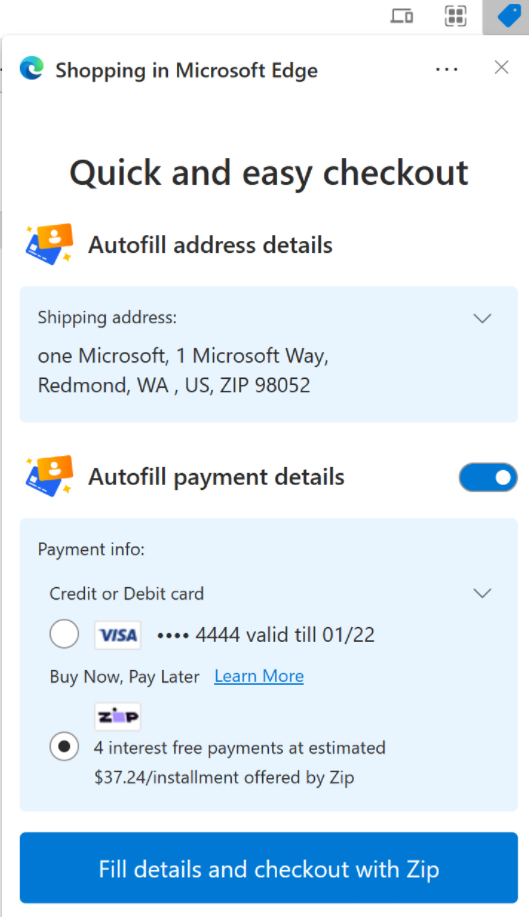A hot potato: Microsoft has worked wonders in its efforts to turn around Edge's ailing fortunes in recent times, but users are far from happy about the browser's latest feature: integration with a buy now, pay later app called Zip (formerly QuadPay).
Microsoft announced plans a few weeks ago to build the Zip app directly into its Edge browser. The short-term financing service gives users the option to sign up on checkout pages when they enter their credit card number. It also appears as a prompt on a web page in some cases.
Zip appears when Edge detects you're about to buy something priced between $35 and $1,000. There are no up-front payments, and it's all interest-free---you just make four payments over six weeks. Zip charges $1 per payment, adding $4 to the total cost, and while that's a good deal when paying $1,000, it's an extra 11% when buying something for $35.
It's deeply shocking this is built into the base Windows OS on billions of devices.
--- Kevin Beaumont (@GossiTheDog) November 30, 2021
I feel like I should start a GoFundMe for Microsoft, or teach them how to beg bounty, as clearly they need the money. https://t.co/TtZXAcZsGf
Edge users have the option of selecting Zip as the default payment method and can link their Microsoft accounts to the loan company to speed up the application process. Microsoft writes on its support page that any merchants who do not wish to use the service will have to contact the Redmond firm to opt-out.
Ars Technica notes that the Zip integration has not been welcomed with open arms by everyone. "I don't want it. I don't even want the shopping and discovery features y'all have pushed out. These kinds of things should be separated into extensions," wrote one user. "Please stop turning all these things on by default, or at least give us an option for a 'Core' experience that is basic browsing features plus the security enhancements. As it stands right now, I spend about 5-6 minutes making sure that all the extra crap is disabled whenever I set up Edge on a new computer or move between channels."
Another reviewer wrote: "You're starting to overdo these third-party integrations and services. This is just sleazy, Edge is on the verge of feeling dirty to use."
Microsoft, a company worth over $2 trillion, said it "does not collect a fee for connecting users to loan providers" but refused to say if it received other forms of remuneration from loan companies.
In addition to what appears to be greediness on Microsoft's part and the fact that this is adding more bloatware to Edge, there are also security concerns around Zip's addition. Moreover, it has the potential to land some people in financial difficulties.
Microsoft made Edge a much more appealing prospect when it officially moved to a Chromium-based version last year, but nagging Bing alerts and third-party integrations haven't helped its cause. Microsoft also made switching to an alternative browser in Windows 11 more difficult, and blocked a tool that redirects Edge links in its latest OS.


